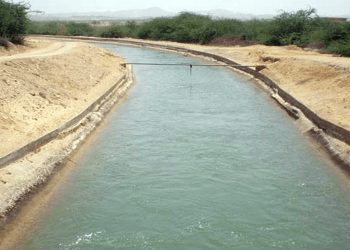ISLAMABAD: The federal government is going to import wheat to avert a full-blown crisis in the country, after the approval of the Economic Coordination Committee (ECC) of the Cabinet today.
On the other hand, sources disclosed that heavy commission would take on wheat procurement by the business tycoons, while, import duty waiver for wheat will also be approved in the meeting.
It further stated that business tycoons gifted large quantities of wheat to neighboring Afghanistan to create a flour crisis in the country. The price of flour will go up rather than fall and the poor people are not likely to get any relief.
however, in order to maintain the stocks at the minimum level of 0.2 million tons, the Prime Minister Imran Khan has decide to import 0.2 or 0.3 million tons of wheat probably from the Central Asian Republics (CARs) or Australia or any other part of the world with the approval of Economic Coordination Committee (ECC) of the Cabinet.
The ECC is scheduled to meet on Monday (today) with Adviser to the PM on Finance Dr Abdul Hafeez Shaikh in the chair. Sources confirmed that the Planning Commission officials had raised alarm bells and informed Prime Minister Imran Khan in official meetings held in September and October 2019 about looming wheat, flour crisis in the country with probability to hit hard by January 2020.
However, the government could not manage to avert this crisis, as it started from the Sindh province but now its spillover impact has already started affecting all other parts of the country.
PTI leaders said the federal government could not be held responsible because it was the domain of the provinces to procure wheat, so if it was not done by Sindh province and its spillover impact negatively impacted others, how they could be the Centre held responsible for this artificial crisis.
Meanwhile, the government and opposition indulged in a blame game over the wheat shortage. The government held the Sindh government responsible saying its untimely purchasing of commodity and supply to flour mills caused the crisis. However, the Sindh government held the prime minister responsible for the situation.

































